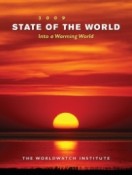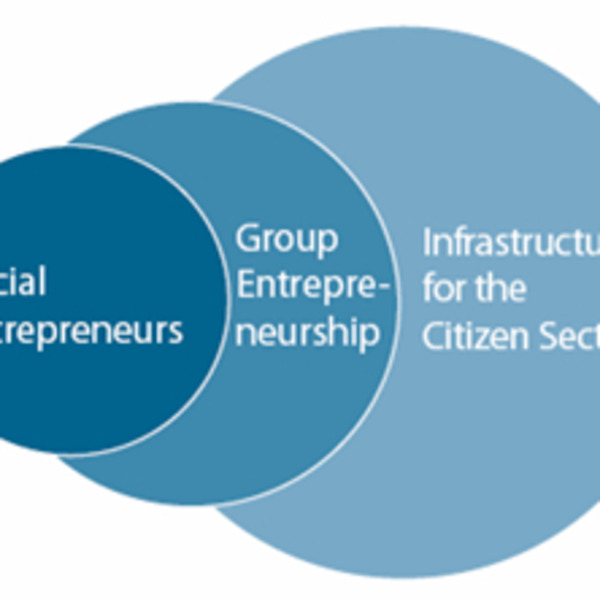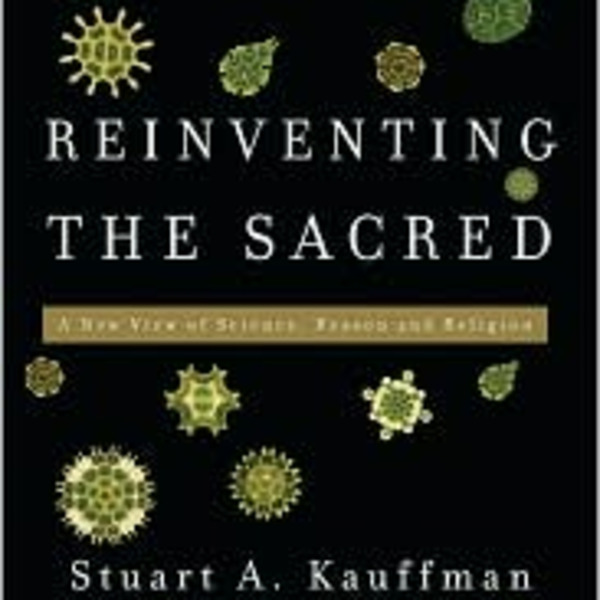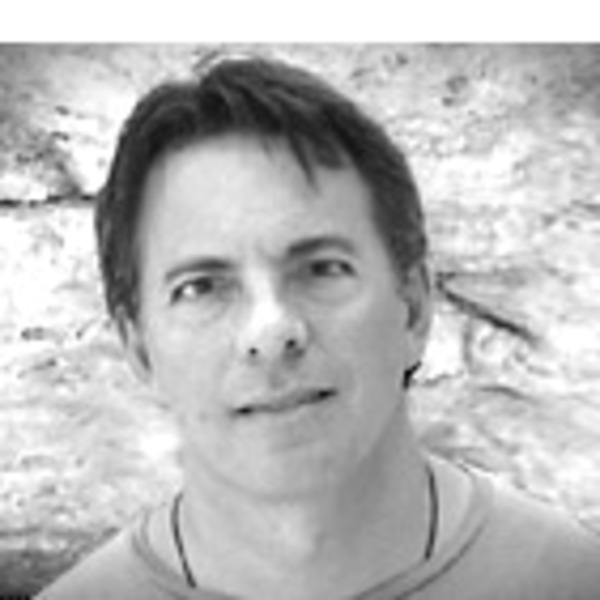Q&A: CHRISTOPHER FLAVIN – President, WORLDWATCH INSTITUTE
Written on January 16th, 2009 |
Aired 01/13/09
CHRISTOPHER FLAVIN is President of the Worldwatch Institute, a Washington-based international research organization focused on energy, resource and environmental issues. Worldwatch is recognized around the world for its pathbreaking work on the global connections between economic, social, and environmental trends. Chris has spent his career at Worldwatch where he previously served as Senior Vice President and Vice President for Research.
Chris is co-author of three books on energy, including Power Surge: Guide to the Coming Energy Revolution, which anticipated many of the changes now under way in world energy markets.
Chris is a regular co-author of the Institute's annual State of the World report, which has been published in 36 languages. He has participated in several historic international conferences, including the Earth Summit in Rio de Janeiro in 1992 and the Climate Change Conference in Kyoto, Japan, in 1997.
Chris is a founding member of the Board of Directors of the Business Council for Sustainable Energy and serves as a board member of the Climate Institute and the Institute for Global Environmental Strategies in Japan. He is on the advisory boards of the American Council on Renewable Energy, and the Environmental and Energy Study Institute. He is also a member of the Greentech Innovation Network, an initiative of Kleiner Perkins Caufield & Byers.
TEN KEY CHALLENGES
(Excerpted from The Perfect Storm by CHRISTOPHER FLAVIN and Robert Engelman, Chapter One of STATE OF THE WORLD 2009, A Worldwatch Institute Report on Progress Toward a Sustainable Society.)
Ten challenges must be met in order to create the world of zero net greenhouse gas emissions that will be needed to achieve climate stability.
Thinking Long-term
Human beings have evolved to be very good at focusing on an immediate threat-whether it is wild animals the first humans faced on the plains of Africa or the financial panic that gripped the world in late 2008. Climate change is a uniquely long-range problem: its effects appear gradual on a human time scale, and the worst effects will likely be visited on people not yet alive. To solve this problem, we must embrace the future as our responsibility and consider the impact of today's decisions on future generations. Just as Egyptians built pyramids and Europeans built cathedrals to last millennia, we need to start acting as if the future of the planet matters beyond our own short lives.
Innovation
The world needs to develop and disseminate technologies that maximize the production and use of carbon-free energy while minimizing cost and optimizing convenience. (Convenience matters: the ease of transporting, storing, and using carbon-based fuels is among their attractions, not captured in price alone.) An effective climate pact will offer incentives that accelerate technological development and ensure that renewable energy and other low-emission technologies are deployed in all countries regardless of ability to pay the costs. We need to dramatically increase the efficiency with which we use carbon-based energy and lower release into the atmosphere of land-based CO2, methane, nitrogen oxides, and greenhouse gases stemming from cooling and various industrial processes. The opportunities for quick and inexpensive emissions reductions remain vast and mostly untapped.
Population
It is essential to reopen the global dialogue on human population and promote policies and programs that can help slow and eventually reverse its growth by making sure that all women are able to decide for themselves whether and when to have children. A comprehensive climate agreement would acknowledge both the impacts of climate change on vulnerable populations and the long-term contribution that slower growth and a smaller world population can play in reducing future emissions under an equitable climate framework. And it should renew the commitment that the world's nations made in 1994 to address population not by pressuring parents to have fewer or more children than they want but by meeting the family planning, health, and educational needs of women.
Changing Lifestyles
The world's climate cannot be saved by technology alone. The way we live will have to change as well-and the longer we wait the larger the needed sacrifices will be. In the United States, the inexorable increase in the size of homes and vehicles that has marked the past few decades has been a major driver of greenhouse gas emissions and the main reason that U.S. emission are double those of other industrial countries. Lifestyle changes will be needed, some of which seem unattractive today. But in the end, the things we may need to learn to live without - oversized cars and houses, status-based consumption, easy and cheap world travel, meat with every meal, disposable everything - are not necessities or in most cases what makes people happy. The oldest among us and many of our ancestors willingly accepted such sacrifices as necessary in times of war. This is no war, but it may be such a time.
Healing Land
We need to reverse the flow of carbon dioxide and other greenhouse gases from destroyed or degraded forests and land. Soil and vegetation can serve as powerful net removers of the atmosphere's carbon and greenhouse gases. Under the right management, soil alone could absorb each year an estimated 13 percent of all human-caused carbon dioxide emissions. To the extent we can make the land into a more effective "sink" for these gases we can emit modest levels essential for human development and wellbeing. Like efficiency, however, an active sink eventually faces diminishing returns. And any sink needs to be secured with "drain stoppers" to prevent easy return of greenhouse gases to the atmosphere when conditions change.
Strong Institutions
"Good governance" can be a cliché-until someone needs it to survive. The final months of 2008 laid painfully bare the dangerous imbalance between a freewheeling global economy and a regulatory system that is a patchwork of disparate national systems. And if there was ever a global phenomenon, the climate is it. In fact it is not hard to imagine the climate problem driving a political evolution toward global governance over the long term, but given the public resistance to that idea the next most effective climate-regulating mechanism will be the strength and effectiveness of the United Nations, multilateral banks, and major national governments. New institutions and new funds will be needed, but it could take a major public awakening or a dramatically deteriorating climate to overcome the obstacles to inventing and establishing them.
The Equity Imperative
A climate agreement that can endure and succeed will find mechanisms for sharing the burden of costs and potential discomforts. Per capita fossil fuel CO2 emissions in the United States are almost five times those in Mexico and more than 20 times the levels in most of sub-Sahara. An effective climate agreement will acknowledge the past co-optation of Earth's greenhouse-gas absorbing capacity by the wealthiest and most industrialized countries and the corresponding need to reserve most of what little absorbing capacity is left for countries in development. Most people live in such countries, and they bear little responsibility for causing this problem -though it is worth recalling that a small but growing share of their populations already have large carbon footprints.
Economic Stability
In the fall of 2008 the global economy foundered, raising the obvious question: can a world heading into hard economic times add to its burdens the costs of switching from fossil to renewable fuels or managing precious land for carbon sequestration? Any climate agreement built on an assumption of global prosperity is doomed to failure. And as growing and increasingly affluent populations demand more of the resources of a finite planet, we may have to balance the future of climate against present realities of hunger, poverty, and disease.
A robust international climate regime will need to design mechanisms that will operate consistently in anemic as well as booming economic times. And a strong pact will be built on principles and innovations that acknowledge and accommodate the problem of cost - while building in monitoring techniques to ensure that efficiency is not achieved at the expense of effective and enduring emission cuts and adaptation efforts.
Political Stability
A world distracted by major wars or outbreaks of terrorism will not be able to stay focused on the more distant future. And just such a focus is needed to prevent future changes in climate and adapt to the ones already occurring. A climate pact could encourage preemptive action to diminish insecurity caused or exacerbated by climate change. But unless nations can find ways to defuse violent conflict and minimize the chance that terrorism will distract and disrupt societies, climate change prevention and adaptation (along with development itself) will take a back seat.
On the bright side, negotiating an effective climate agreement offers countries an opportunity, if they will only seize it, to practice peace, to look beyond the narrowness of the interests within their borders at their dependence on the rest of the world, to see humanity as a single vulnerable species rather than a collection of nations locked in pointless and perpetual competition.
Mobilizing for Change
As fear of climate change has grown in recent years, so has political action. But opponents of action have repeatedly pointed to the vast costs of reducing emissions. At a time of serious economic problems, the power of that argument is growing, and some of those who are persuaded are going straight from denial to despair.
The most effective response to both of those reactions is, in the words of Common Cause founder John Gardner, to see global warming as "breathtaking opportunities disguised as insoluble problems." Solving the climate problem will create the largest wave of new industries and jobs the world has seen in decades. Michigan, Ohio, and Pennsylvania in the United States are among those that have devoted enormous efforts to attracting new energy industries - with a glancing reference to climate change and a major focus on creating new jobs to revive "rustbelt" economies.
In November 2009, the world faces a test. Will the roughly 200 national governments that meet in Copenhagen to forge a new climate agreement come up with a new protocol that provides both vision and a roadmap, accelerating action around the globe? The challenges are many: Will the global financial crisis and conflict in the Middle East distract world leaders? Will the new US president have time to bring his country back into a leadership position? Will the global North-South divide that has marked climate talks in recent years be overcome?
Climate change is not a discrete issue to be addressed apart from all the others. The global economy fundamentally drives climate change, and economic strategies will need to be revised if the climate is ever to be stabilized - and if we are to satisfy the human needs that the global economy is ultimately intended to meet.
We cannot afford to have the Copenhagen climate conference fail. The outcome of this meeting will be written in the world's history books - and in the lasting composition of our common atmosphere.
-----------------------------------------------------
WORLDWATCH INSTITUTE delivers the insights and ideas that empower decision makers to create an environmentally sustainable society that meets human needs. Worldwatch focuses on the 21st-century challenges of climate change, resource degradation, population growth, and poverty by developing and disseminating solid data and innovative strategies for achieving a sustainable society. For more information, visit www.worldwatch.org
Q&A: GERALD CELENTE – The Trends Research Institute
Written on January 12th, 2009
Aired 01/06/09
GERALD CELENTE of The Trends Research Institute publishes TRENDS JOURNAL. A New Yorker, who calls himself a political agnostic, Celente gives everybody hell. I first booked him in January 05 and listener response has led me to make this an annual show.
CELENTE accurately forecast the Iraqi War quagmire, the last two recessions, the Dot-Com meltdown, and the 1987 world stock market crash. As far back as 1993 he predicted that a new Crusades would be raging at the dawn of the new millennium.
Excerpt from TOP TRENDS OF 2009 by Trends Research
THE YEAR THAT WAS
We described last year's "Year that Was" as ending with "an economic bang and a political thud." By contrast, 2008 goes out with a spectacular display of political fireworks and an economic implosion unlike anything experienced before.
History was made. The racial barrier came down. A man of black & white blood, modest means and scant experience was elected to rescue a great and foundering nation. A young, charismatic president was replacing a Commander in Chief who had long since worn out his welcome.
In 2000, George W. Bush assumed the presidency following an election replete with doubt and irregularities. A troubled first year abruptly gave way to a 90 percent approval rating following the trauma of 9/11. Playing his Commander in Chief trump card, he declared a War on Terror and war on Iraq.
In 2004, with the Iraq War going badly but the economy booming - especially the real estate market - he remained popular enough to squeak out a second term. In 2006, with the costs of war and casualties mounting, a Democratic Congress was voted in with a mandate to end the Iraq War. Instead they kept funding it.
By 2007, with America still bogged down in war, the real estate bubble bursting, a credit crisis erupting, and the subprime lending market collapsing, George Bush's popularity went into free fall. No longer confined to disgruntled Democrats, Bush-bashing became a bipartisan pastime.
Most will remember the economy as the 2008 Election hot button issue. In reality, it replaced the Iraq War only when the news of failing banks, bustedbrokerages, government bailouts and rescue plans preoccupied the press.
But it was candidate Barack Obama's early stand against the Iraq War - and his promise to end it - that separated him from the favorites of both parties seeking the presidency. In early 2008, none of the candidates in the run for the White House had an approval rating above 50 percent. Going into the Iowa Primary, Hillary Clinton was leading in the national polls while Obama's campaign was slowly gaining momentum. It wasn't until talk show host Oprah Winfrey jumped into the ring that it kicked into high gear.
THE PRESIDENTIAL REALITY SHOW
With the undisputed Queen of TV in his corner, the Obama campaign suddenly transformed into a flawlessly packaged Oprah production. Whether a stadium spectacle or a small town meeting, every event was staged to perfection.Was the celebrity witchcraft that endears Oprah to her millions of fans directed toward political stagecraft?
As if by magic, Obama, an adequate public speaker, became the master of the Teleprompter; so skillful - and with cameras so artfully placed - that the illusion of spontaneity was created. Pacing the stage, confident of his words, his cadenced oratory gave him a messianic quality. "Yes we can!" preached Obama. "Yes we can!" echoed his mesmerized political congregation.
As the economy worsened and the Iraq War was pushed into the background, Obama's focused message of change and his tightly-scripted performance made him a leading contender in The Presidential Reality Show.
Meanwhile, his main challenger, Hillary Clinton was repeatedly discrediting herself by playing the race card, and clumsily exaggerating her foreign policy
achievements with such claims as having dodged bullets in Bosnia and negotiating the peace in Ireland.
In opposition, the Republicans ran the uncharismatic and aging John McCain, inextricably tied to eight years of the Bush administration, an insurmountable obstacle. The President, posting near record low approval ratings, was so universally derided and despised that McCain saw Bush as an unconditional liability, banning him from the campaign trail.
The combination of an economic meltdown, Mc- Cain's acknowledged lack of economic awareness ... and puzzling choice of running mate made possible the impossible: a black, practically unknown challenger swept into power.
Q&A: BILL DRAYTON, founder/CEO, ASHOKA – INNOVATORS FOR THE PUBLIC
Written on December 31st, 2008
Aired 12/24/08 TERRY McNALLY on AIR AMERICA RADIO sitting in for RACHEL MADDOW and interviews BILL DRAYTON. BILL DRAYTON has pioneered the field of social entrepreneurship. He is the CEO and founder of ASHOKA, a global organization which selects individuals tackling society's most pressing problems with innovative, entrepreneurial solutions. Since 1981, ASHOKA has elected over 2,000 leading social entrepreneurs as Ashoka Fellows, providing them with living stipends, professional support, and access to a global network of peers in more than 60 countries. Through ASHOKA, DRAYTON has introduced the world to a fundamentally new model of how ideas can change social systems across the globe, improving the lives of millions. As a management consultant with McKinsey & Co, he gained wide experience serving both public and private clients, and built his understanding of how organizations work. He also served briefly in the White House, and taught both law and management at Stanford Law School and Harvard's Kennedy School of Government. He is a graduate of Harvard, Oxford, and Yale Universities. Social entrepreneurs often seem to be possessed by their ideas, committing their lives to changing the direction of their field. They are both visionaries and ultimate realists, concerned with the practical implementation of their vision above all else. Each social entrepreneur presents ideas that are user-friendly, understandable, ethical, and engage widespread support in order to maximize the number of local people that will stand up, seize their idea, and implement with it. In other words, every leading social entrepreneur is a mass recruiter of local changemakers-a role model proving that citizens who channel their passion into action can do almost anything. Over the past two decades, the citizen sector http://www.ashoka.org/citizensector has discovered what the business sector learned long ago: There is nothing as powerful as a new idea in the hands of a first-class entrepreneur. Just as entrepreneurs change the face of business, social entrepreneurs act as the change agents for society, seizing opportunities others miss and improving systems, inventing new approaches, and creating solutions to change society for the better. While a business entrepreneur might create entirely new industries, a social entrepreneur comes up with new solutions to social problems and then implements them on a large scale. Learn more at http://ashoka.org
Q&A: STUART KAUFFMAN, Author
Written on December 31st, 2008
Aired 12/24/08 TERRY McNALLY on AIR AMERICA RADIO sitting in for RON REAGAN and interviews STUART KAUFFMAN. STUART KAUFFMAN is the director of the Institute for Biocomplexity and Informatics at the University of Calgary, a MacArthur Fellow and an external professor at the Santa Fe Institute. He is the author of The Origins of Order, At Home in the Universe: The Search for the Laws of Self-Organization, Investigations and his newest, Reinventing the Sacred: A New View of Science, Reason, and Religion. With economic and communications globalization, some form of a global civilization is beginning to emerge. Just as we confront the challenges of global warming and peak oil, and the likelihood of growing hunger and resource wars, our diverse cultures are being crushed together. One response is a retreat into fundamentalisms, often religious, often hostile. Clearly there is an urgent need for new thinking. STUART KAUFFMAN says that's why he wrote Reinventing the Sacred. Rooted in hard science, the book - and it's passionate author -- aims for nothing less than a revolution in how we see the world, reality, God, and our role in it all. Learn more at http://www.edge.org
Q&A: DAN PALLOTTA, founder, Pallotta TeamWorks, (AIDS Rides, breast cancer walks) and Author
Written on December 29th, 2008
Aired 12/23/08 Charities may operate with the noblest of intentions - but according to DAN PALLOTTA, they are hampered from the very start by an irrational set of rules and assumptions. By barring or discouraging charities from wielding the most effective tools of capitalism, he insists, we limit their ability to fight the social problems they were formed to tackle on a truly significant scale. UNCHARITABLE goes where no other book on the nonprofit sector has dared to tread. Where other texts suggest ways to optimize performance inside the existing paradigm, Uncharitable suggests that the paradigm itself is the problem and calls into question our fundamental canons about charity. Pallotta argues that society's nonprofit ethic acts as a strict regulatory mechanism on the natural economic law. It creates an economic apartheid that denies the nonprofit sector critical tools and permissions that the for-profit sector is allowed to use without restraint (e.g., no risk-reward incentives, no profit, counterproductive limits on compensation, and moral objections to the use of donated dollars for anything other than program expenditures. http://www.danpallotta.com
